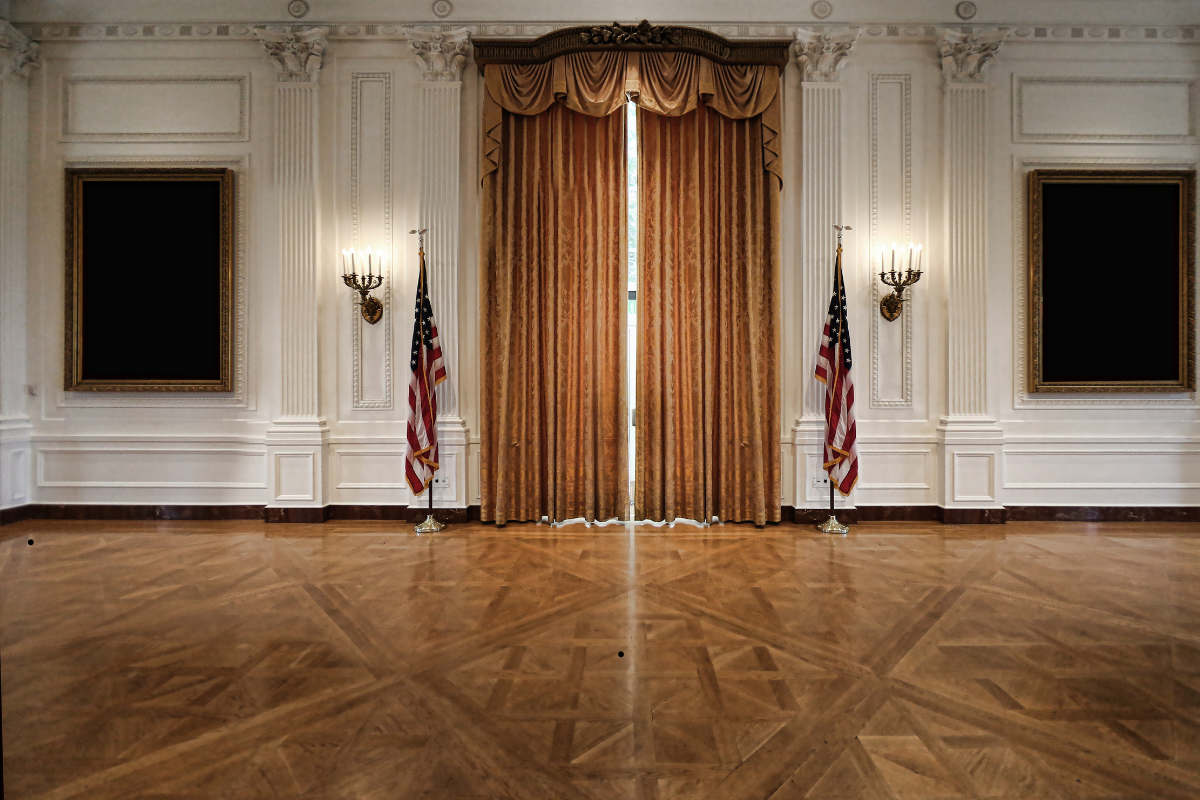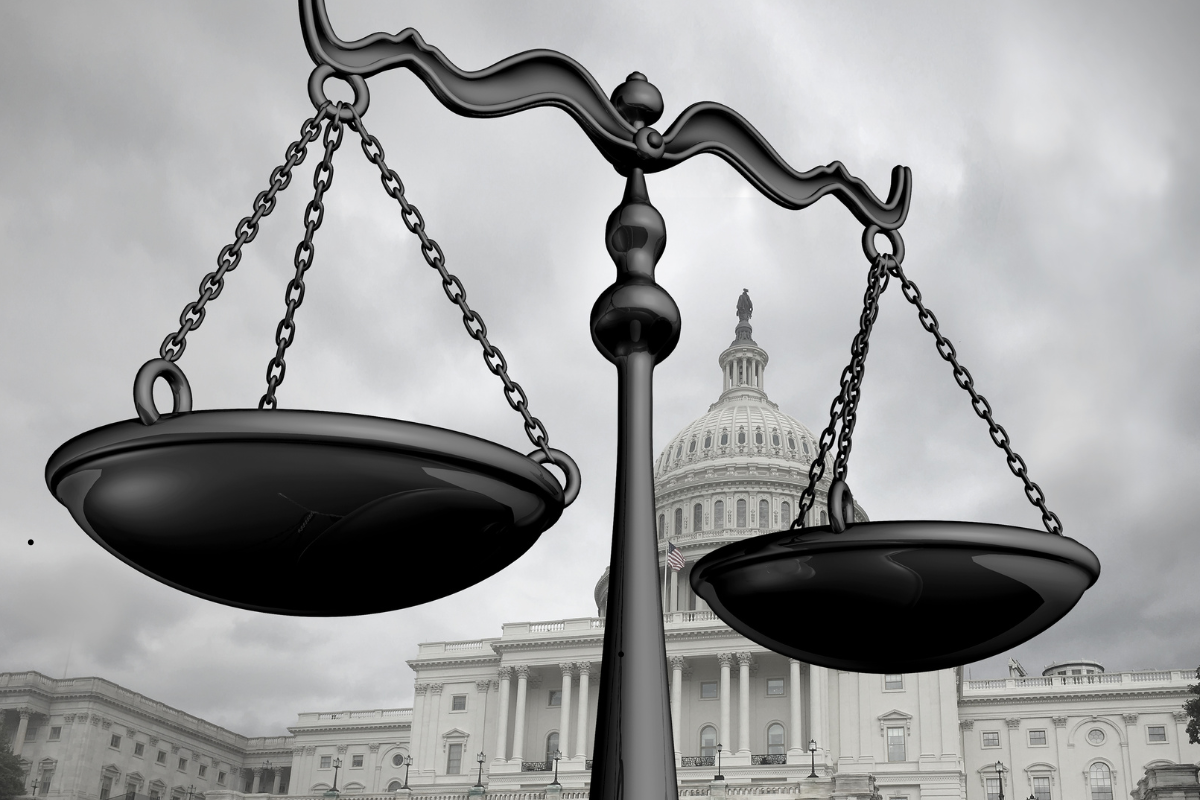Federalist 60
Continuing his reflection on the controversial clause allowing members of Congress some regulation of their own elections, Hamilton in Federalist 60 dismissed Anti-federalist concerns as “chimerical” – a not uncommon rhetorical strategy Publius employed when dealing with a substantive disagreement. “Don’t worry,” he seems to have argued, “Congress would never abuse this power.” The Anti-federalists might be forgiven their skepticism, not necessarily because they thought this power especially might be open to abuse – although that seems to be the case – but because they thought it foolish to create a Constitution based upon cherry-picking which powers were most likely to be abused — an approach focused too much on the potential behavior of politicians rather than the nature of the power itself.
We often think of class conflict as involving disputes between the rich and the poor, and indeed the Anti-federalists worried that this power would favor the rich, but during the constitutional period references to classes typically meant different modes of economic life. Hamilton used classes in this sense, arguing that the predominance of the agrarian class, especially at the state level, protected voters against the machinations of “the rich and the well-born.” Whenever liberties were at risk the “manly” virtues of the yeomanry could be counted on to defend them.
Agrarian Interests
Tellingly, however, Hamilton did not use the word “Congress” to identify the regulatory power; rather, he ascribes it to “the Union.” The purpose of this mis-ascription was intended as a double-assurance: not only would agrarian interests prevail, but the dangers of factional abuse were further mitigated by the fact that “The interest of all would, in this respect at least, be the security of all.” In other words, the rich and the well-born would have as much to fear from the abuse of this power as would the poor and the yeomanry, and this congealed fear offer a sufficient counterweight to ambitious designs.
As with earlier arguments, Publius counted on the ever-shifting nature of factional alignments to act as a constitutional security. “There is sufficient diversity in the state of property,” Hamilton insisted, “in the genius, manners, and habits of the people of the different parts of the Union, to occasion a material diversity of disposition in their representatives towards the different ranks and conditions in society.” Hamilton might be forgiven for contradicting Jay’s earlier arguments concerning the uniformity of American life, or we might consider this an example of argument from convenience. When argumentatively necessary to assert uniformity, Publius did so, and when stressing differences served his argumentative purposes better, Publius was not afraid to do that either.
Revolution as a Check on Power
Hamilton’s argument hinged on his assertion that any class of society that attempted to abuse the power would find immediate resistance, either from another class or from a coalition of them, and this resistance would be stiffened by arms. “The improbability of the attempt may be satisfactorily inferred from this single reflection, that it could never be made without causing an immediate revolt of the great body of the people, headed and directed by the State governments.” Zealous guardians of their liberties, people would respond to the abuse of this power by revolution, Americans having demonstrated before that they would be ready to go to arms to protect their liberties. Borrowing on that past, Hamilton reminded readers “that so fundamental a privilege,” such as elected officials having authority over their own election, “in a country so situated and enlightened, should be invaded to the prejudice of the great mass of the people, by the deliberate policy of the government, without occasioning a popular revolution, is altogether inconceivable and incredible.” This, too, echoed Madison’s argument in 55, that a people not prepared to fight for their liberties were prepared to bear the yoke of tyranny. Republican politics may try to repress or channel the threat of popular revolt, but that impulse remained the surest guarantor of liberty.
So why institute a power the response to which is revolution? In any well-constructed constitutional system powers are only given that have less dramatic means of restraint, otherwise we would be in a constant state of constitutional crisis. Mechanisms of restraint ought to be proportionate to the potential abuse of power; a restraint as dramatic as the one Hamilton identified here indicated that the power not only could be easily abused, but that there weren’t sufficient checks in place. And this, of course, was exactly what the Anti-federalists were arguing.
Unlike Madison’s meditations on potential abuses of power, Hamilton often attempted to placate critics by assuring them that such abuse was “unlikely.” Granted, he provided reasons why this was the case. The fact that states had primary authority over the time, place, and manner of elections would make it less likely that successful collusion by one class could occur. Even if a single class could control the national chambers, they would have difficulty imposing their will upon the states in the absence of a military power backing them up. It was unlikely, Hamilton argued, that the federal government would ever have sufficient military power to overwhelm the states, and the ability of the states to use their militias to resist a federal army also provided security for their self-rule. Conscious of the superior power of the state militias, designing men would use the power sparingly, if at all, for they would “fear that citizens, not less tenacious than conscious of their rights, would flock from the remote extremes of their respective States to the places of election, to overthrow their tyrants, and to substitute men who would be disposed to avenge the violated majesty of the people.”
Farmers or Merchants?
In the process Hamilton (again) tipped his hand about the direction in which he wanted to see the political economy of the nation move. Granted, the yeomanry jealously guarded their liberties, but they would have less need to since their interests would almost always prevail both at the state and the federal level. If any class was disadvantaged by the republican systems of election it would be the merchant class. While Hamilton didn’t make the argument explicitly, he certainly suggested in this essay that one of the main reasons this clause was in place was to protect and advance the interests of the merchant class which would otherwise be at an electoral disadvantage. The yeomanry, advancing and protecting their own interests, would prevent the economic progress necessary for national greatness that merchants and traders alone could provide. “The importance of commerce,” he wrote, “in the view of revenue alone, must effectually guard it against the enmity of a body which would be continually importuned in its favor, by the urgent calls of public necessity.”
What was at stake, then, was not simply the will of the people, nor the integrity of electoral systems, nor even the majoritarian principle, but rather a view of political economy and its relationship to the role America would play in the world. Hamilton may have dismissed Anti-federalist worries as chimerical, but they could see what was at stake. If his argument in 60 was meant to reassure them it can only be considered a failure.
Director of the Ford Leadership Forum, Gerald R. Ford Presidential Foundation
Related Essays




